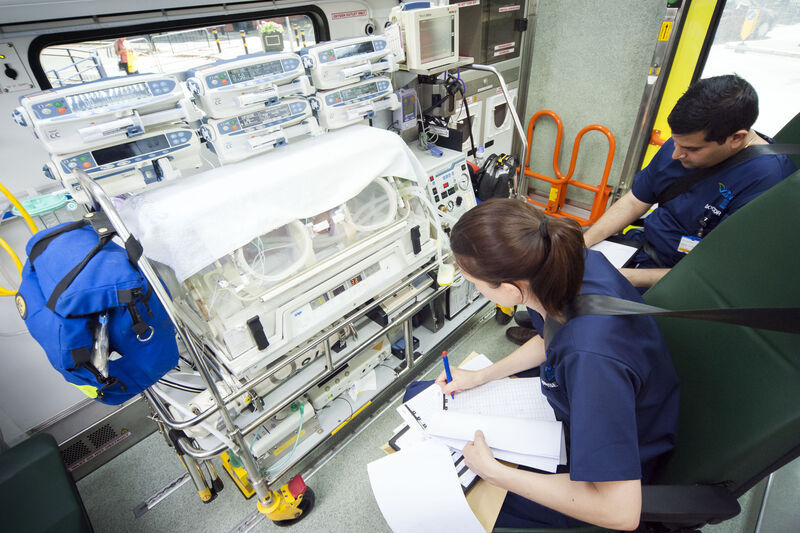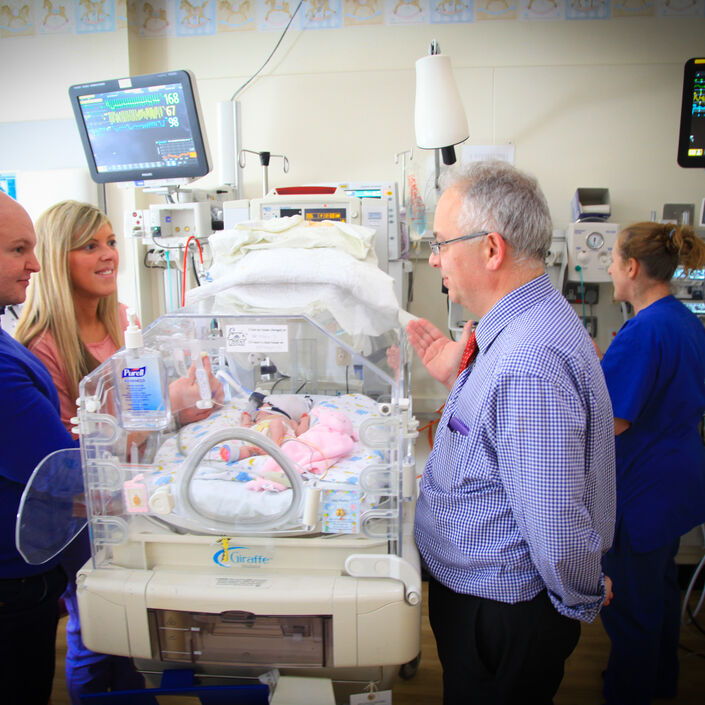Transfers across the UK
Neonatal transport services are organised regionally and each nation has its own set of standards for how neonatal transport services should run. Below is some information about neonatal transport in each UK nation from our most recent series of Baby reports.
England
Transport services across England are under pressure, and services are having to undertake transfers for non-clinical reasons. Our Hanging in the balance (2015) report found:
- In 2014/2015, 855 transfers took place because neonatal units were full or understaffed, and did not have the capacity to care for the baby.
- 142 of these transfers were of ventilated babies, suggesting they were very sick.
- There was wide variation between transport services, with some reporting no transfers of ventilated babies, and some undertaking as many as 57 during the year.
Wales
There are two neonatal transport services in Wales. In North Wales, the service works with the Cheshire and Merseyside Neonatal Transport Service and operates 24 hours a day, seven days a week.
However, in South Wales, the transport service is only funded to operate between 8am and 8pm, leaving units reliant on neighbouring services or neonatal unit staff when babies need to be transferred urgently overnight. Our Baby report 2016: time for change showed:
- There were 66 transfers of babies in 2014/2015 due to a lack of capacity.
- This was nearly a quarter of all emergency transfers.
Scotland
ScotSTAR (Specialist Transport and Retrieval) is responsible for the Scottish Neonatal Transport Service, which operates as a single service across all three network areas. Our Bliss Scotland baby report 2017 found:
- During 2014/2015, 39 babies were transferred due to a lack of capacity at their neonatal unit, 20 of which were extremely ill.
- One of the most significant challenges facing the transport service is recruiting and retaining staff.
Northern Ireland
Formal standards for neonatal transfer were introduced in Northern Ireland in 2016. Since then, the Neonatal Transport Team has become part of NISTAR (NI Specialist Transport and Retrieval Service) which has allowed the neonatal team access to more vehicles, call takers and admin staff.
Despite this positive progress, our Bliss and TinyLife: Northern Ireland baby report 2018 found:
- While a service can be provided 24/7, some non-urgent transfers will be undertaken by an independent provider, and will not with neonatal or paediatric staff.
- The overall number of transfers fell between 2014/2015 and 2016/2017 with the only exception being for transfers due to lack of capacity, which increased.
What we are calling for
Neonatal transport is crucial for making sure babies receive the care they need at the right time, and at a unit suited to their needs. Some of the things we want:
- All services to be planned to run 24 hours a day, seven days a week
- Governments and health service bodies to fund services sufficiently so they can recruit more staff, and cover absences
- All services should have access to enough vehicles, equipment and staff members so they can cope with the number of babies they need to transfer.
- All services should make sure parents are supported during a transfer, and supported to accompany their baby where that is possible.
*Images used on this page were kindly supplied by London Ambulance Service.

